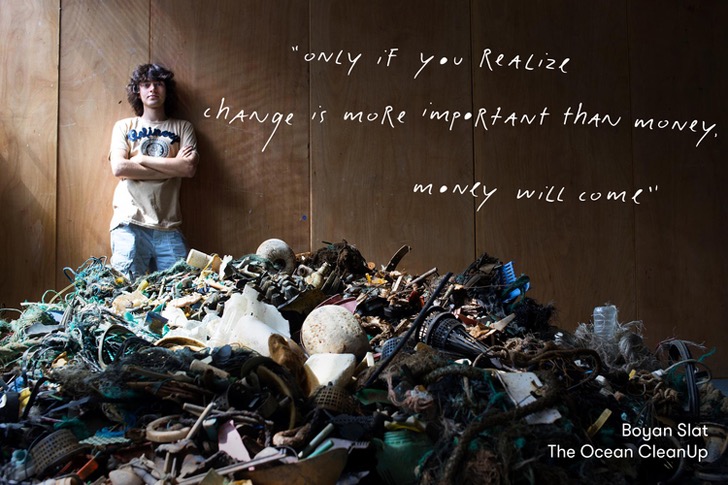
“Human history is basically a list of things that couldn't be done, and then were done.”
Boyan Slat (Delft, 1994) combines environmentalism, creativity and technology to tackle global issues of sustainability.
Currently working on oceanic plastic pollution, he believes current prevention measures will have to be supplemented by active removal of plastics in order to succeed.
“It will be very hard to convince everyone in the world to handle their plastics responsibly, but what we humans are very good in, is inventing technical solutions to our problems. And that’s what we’re doing.”
Besides leading The Ocean Cleanup, Boyan was an Aerospace Engineering student at the Delft University of Technology, and is an avid photographer and diver.
At age 14, he was awarded the Best Idea of South-Holland award, and a Guinness World Record.
In 2012, The Ocean Cleanup Array has been awarded Best Technical Design at the Delft University of Technology, and became second at the iSea Clash of the Concepts sustainable innovation award by the Dutch Ministry of Infrastructure and the Environment.
Boyan Slat’s Twitter
Boyan slat’s Facebook
Boyan Slat’s LinkedIn
Millions of tons of plastic debris are polluting world's oceans eternally.
Plastic reaches the oceans mostly from land trough rivers and waterways, and then accumulates in 5 areas of high concentration, called gyres.
Not only does it directly kill hundred-thousands or even millions of aquatic animals annually, its fouling may spread harmful algae and other invasive species, and furthermore serves as a transport medium for pollutants (including PCB and DDT), accumulating in the food chain.
Plastic pollution costs governments, companies and individuals millions of dollars in damages per year, due to loss in tourism, vessel damages and (inefficient) beach clean-ups.
Plastic remediation will be extremely effective, but it must be remembered that a clean-up operation will always need to be paired with prevention (on land) in order to succeed.
We'll need a combination of both worlds, and we'll need them soon.


